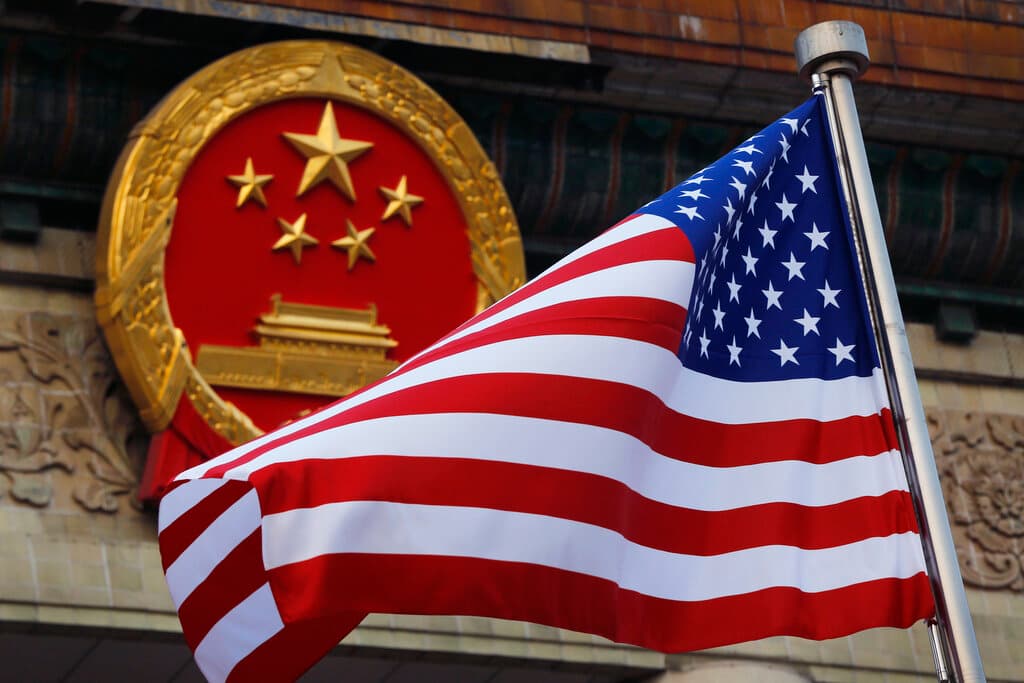Appeals Court To Hear Challenge to Florida Law Restricting Many Chinese Citizens From Owning American Property
Critics see the legislation as ‘racist’ and in violation of federal civil rights protections.

The 11th Circuit Court of Appeals will soon weigh a challenge to a Florida law barring many Chinese citizens from buying land in the state, which critics see as “racist” and in violation of federal civil rights protections.
On Friday, the 11th Circuit at Atlanta will hear arguments against the law purported to protect Floridians from the Chinese Communist Party, which Governor DeSantis called “the United States’ greatest geopolitical threat” when he signed the law in May.
The case is on an expedited appeal track after the circuit court in February blocked the law from being enforced against two of its challengers, Yifan Shen and Zhiming Xu.
The litigation could have ripple effects in several other states, including Texas and Louisiana, which weighed similar measures last year. The efforts come amid growing international investment into American farmland as the world’s population grows and natural resources become scarcer.
Meanwhile, some at Capitol Hill, like members of the House select committee on the Chinese Communist Party, are demanding greater federal regulation of agricultural land purchases.
“Florida’s law is blatantly discriminatory,” a senior staff attorney with the ACLU’s National Security Project, Ashley Gorski, tells the Sun. “It targets immigrants from China and several other countries, putting huge parts of the state off-limits to people who simply want to buy a home. We’re looking forward to explaining to the court of appeals why this unconstitutional law must be halted.”
The law restricts property ownership for some residents from “foreign countries of concern,” including Communist China, Cuba, Iran, North Korea, and Venezuela. It further prevents those from China who are “domiciled” there and not “lawful” American residents from purchasing more than two acres of land, which may not be within five miles of a military installation.
Property sellers who knowingly violate the law could face misdemeanor criminal penalties.
Mr. DeSantis, who is not involved in the suit, championed the law on X while he was on the campaign trail in July: “While the Biden-Garland DOJ sides with Communist China, I side with the American people.” The law is also endorsed by Florida’s commissioner of agriculture, Wilton Simpson.
In August, a district judge, Allen Winsor, who was appointed by President Trump, rejected the argument that the law intentionally discriminates against Chinese non-citizens. He said it “would apply to a person of Chinese descent domiciled in China the same way it would apply to a person not of Chinese descent domiciled in China. And its application would never turn on a person’s race.”
Mr. Winsor also argued that the challenge to the law did not have a clear chance of succeeding, a threshold for determining whether to enjoin a law ahead of a trial. The February ruling, though, suggested otherwise.
“A blanket ban” against Chinese citizens from buying land in the state is how one of the appeals court judges, who was appointed by President Biden, Nancy Abudu, described the law. She said it “blatantly violates the 14th Amendment’s protection against discrimination” and said the suit has a “substantial likelihood of success.”
The Department of Justice filed a “statement of interest” in the case in June, asserting that Florida’s law would cause “serious harm” by undermining federal civil rights and constitutional rights while failing to advance the state’s goal of increasing public safety.
The legislation was described as “racist” in a statement by the legal director of the Asian American Legal Defense and Education Fund, which is among the firms representing the plaintiffs, Bethany Li. She said it is “steeped in a history when Asians were ineligible for citizenship and were told they didn’t belong.”

